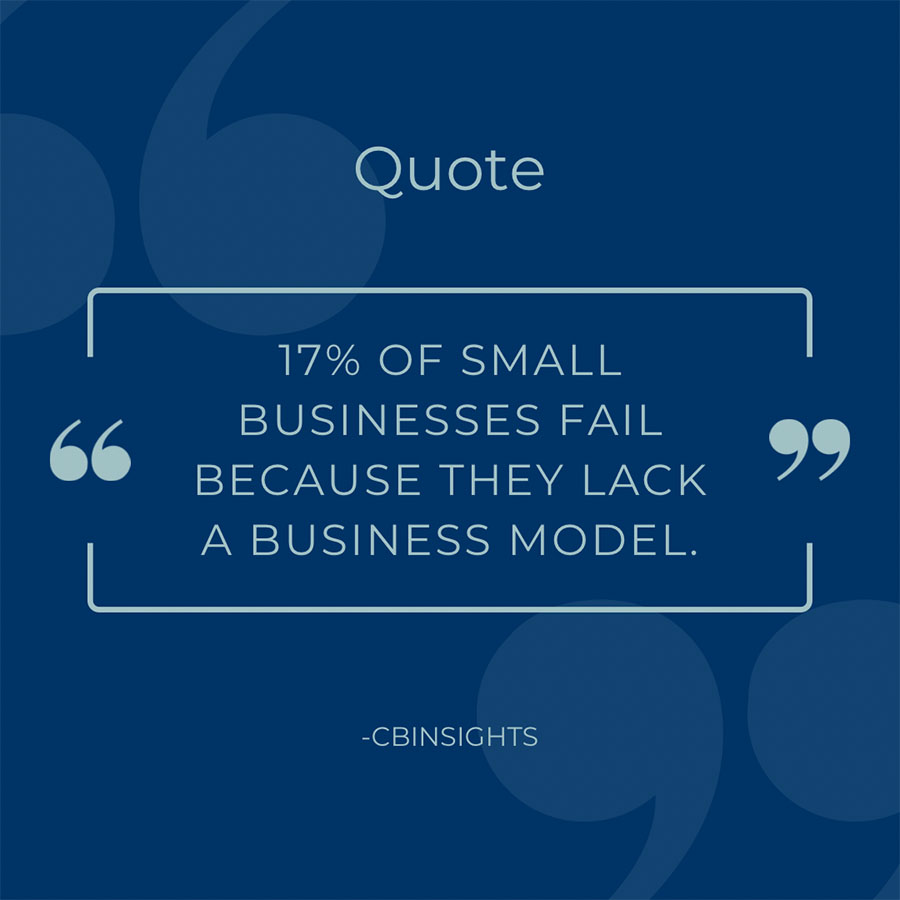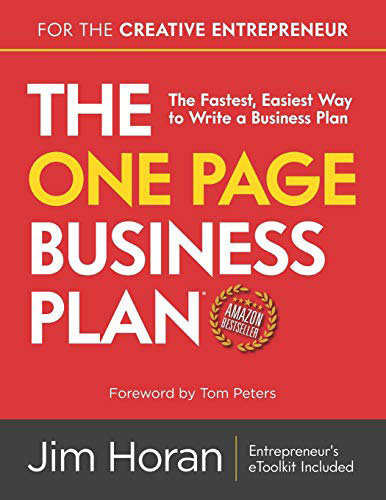This post may contain affiliate links. Read about our privacy policy.
It’s always surprising to me to discover how few businesses actually have a business plan. Nothing! Not even some notes on a napkin! But a business plan isn’t something start-ups usually consider until after they have been rejected for financing (usually for not having a solid plan).
And why is that? After all, it’s nearly impossible to start and run a successful business without some kind of thoroughly researched or well-refined plan. And considering the statistics on small business failures in relation to business plans, why wouldn’t you come up with at least something?
It is estimated that “17% of small business fail because they lack a business model” (CBInsights)

Simply declaring your idea to the world won’t be enough to secure your business legacy (no matter how incredible the idea is). You will need clearly-defined objectives, income projections, target market and competitor research, and more if you really expect to succeed in business.
Moreover, a business plan is essential if you plan to seek out either independent or bank-associated investors—most investors don’t want to sign away their financing over a cocktail napkin and a dream.
Once you know you have an idea that’s worth turning into a business, your next step truly should be to prepare some kind of business plan. The Small Business Administration (SBA) provides a dedicated site for Business Plans if you are looking for somewhere to start.
Depending on what your business is and what your ultimate goals are, you may not need anything too complicated. Many of the small businesses I coach rely on a simple, one-page business plan, while others will really need something more comprehensive, especially if outside financing is in the future.
 An excellent resource on simple business plans is the book The One Page Business Plan by Jim Horan.
An excellent resource on simple business plans is the book The One Page Business Plan by Jim Horan.
If you know you need something a bit more extensive, you can always seek out a professional service like Wise Business Plan™ or Live Plan, but usually (at least in the beginning stages, and assuming you don’t have multi-million dollar projections) you can rely on yourself and a few writing prompts.
Here’s what you will need to consider:
- Why does your business need to exist?
- What does your company do?
- Who is your target market or market segments?
- Who is your main competition?
- Who is on your team, if anyone? If you don’t have anyone, who’s on your dream-team?
- Who are your advisors (paid or otherwise)?
- What are your financial goals and targets? What are your long-term sales goals?
- What kind of financing are you looking for, if any?
- What are your company’s pros and cons? What do you do better than others and where do you foresee challenges?
- What is your marketing plan?
- What is your sales plan?
- Do you have a physical location? Have you done any research on this area?
- What important technology or equipment will you need in your business?
- What are your specific goals and the dates you plan to achieve them by?
If you are seeking investors, you will also need:
- Monthly expenses
- Revenue by month
- Net profit or loss by year
- What do you plan to use the investment money for?
- Your financing plans
- Projected Profit and Loss (P&L)
- Projected Balance sheet
- Projected Cash Flow Statement
- Monthly and annual P&L Statement
- Monthly and annual Balance Sheet
- Monthly and annual Cash Flow Statement
If you do plan to seek out financing, I highly recommend you use both QuickBooks and Live Plan to help you organize your business plan. These will provide the essential reports, charts, and diagrams to complete your business plan.
Is a one-page business plan sounding pretty good right about now?
Don’t underestimate the incredible power of a well-crafted business plan. It can force you to research and define aspects of your industry, provide insights to the market, help you navigate the difficult beginning stages of your business, and even inspire your tagline.
The long list above shouldn’t dissuade you from taking the time to sit down and create a plan for your company. Just answer one question at a time and before you know it, your plan will be written!
Want some help crafting your plan? Let’s schedule a call and I can send you a template for free!
Disclaimer: This post includes affiliate links, and I will earn a commission if you purchase through these links. Please note that I’ve linked to these products purely because I recommend them and they are from companies I trust. There is no additional cost to you.

